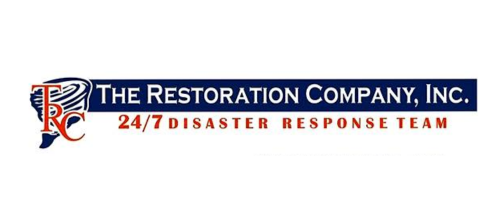How to Clean Smoke Damage on Walls and Ceilings: A Guide from TRCIL
Smoke damage can leave behind more than just a lingering odour — it often causes discolouration, staining, and long-term surface degradation if not properly cleaned. Whether caused by a fire, a chimney issue, or even excessive candle or cigarette use, it’s important to act quickly and correctly. At TRCIL, we’ve worked with property owners across a range of smoke damage restoration projects. Here’s our step-by-step guide for tackling smoke damage on walls and ceilings.
1. Ensure the Area is Safe and Ventilated
Before starting any cleaning, make sure the area is safe:
-
Confirm that the source of the smoke has been dealt with
-
Open windows and doors to allow fresh air to circulate
-
Wear protective gloves, a mask, and safety goggles
Smoke particles and soot can be hazardous, especially in enclosed spaces.
2. Dry Clean First to Remove Loose Soot
Start by using a dry-cleaning sponge (also known as a chemical sponge) designed specifically for soot removal. These sponges lift residue from surfaces without smearing.
-
Gently wipe the wall or ceiling in one direction
-
Don’t scrub, as it can push soot deeper into the material
-
Replace the sponge surface or use a fresh one as it becomes soiled
Avoid using water at this stage, as it can spread the soot further.
3. Vacuum Any Loose Residue
Using a vacuum cleaner with a soft brush attachment, gently vacuum remaining loose soot or debris. Hold the brush just off the surface to avoid smearing and damaging the paint or plaster.
4. Prepare a Cleaning Solution
For painted walls and ceilings (non-porous surfaces), you can use a mild cleaning solution:
-
Mix warm water with a small amount of washing-up liquid or degreasing cleaner
-
Add a tablespoon of bicarbonate of soda per litre to help absorb odours
Avoid overly harsh chemicals unless recommended for smoke damage, as they can strip paint or damage finishes.
5. Wash the Affected Area
Dip a soft cloth or sponge into the solution, wring it out, and gently wipe the surface:
-
Start from the bottom and work your way up to prevent streaking
-
Rinse the cloth frequently to avoid spreading soot
-
After cleaning, wipe with clean water and dry with a towel
For ceilings, take extra care with overhead work and avoid oversaturation.
6. Use Specialised Cleaners for Stubborn Stains
If staining remains, use a smoke and soot remover product approved for indoor surfaces. Follow the manufacturer’s instructions carefully. In some cases, especially after larger fires, professional restoration services may be required to fully eliminate stains and odours.
7. Deodorise the Space
Smoke odours can linger even after cleaning. You can:
-
Use odour-neutralising sprays
-
Place bowls of vinegar or activated charcoal around the room
-
Consider using an air purifier or ozone generator for deeper deodorising (only with proper safety measures)
8. Prime and Repaint if Needed
In some cases, surfaces may need repainting after cleaning:
-
Use a stain-blocking primer designed for smoke damage
-
Apply fresh paint in the desired finish
This step helps seal in any residual odours or stains and gives your space a fresh, clean appearance.
When to Call the Professionals
Light smoke damage can often be managed with the steps above. However, if you’re dealing with:
-
Heavy or widespread staining
-
Persistent odours
-
Damage to plaster or textured surfaces
-
Sensitive materials such as wallpaper or fabrics
…then it’s best to consult a professional. At TRCIL, we offer expert smoke damage cleaning and restoration services to bring your property back to its best.
Need Help?
If your home or business has suffered smoke damage, contact TRCIL for professional support. Our team is fully equipped to handle soot removal, odour control, and full surface restoration safely and effectively.

